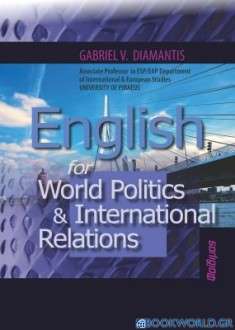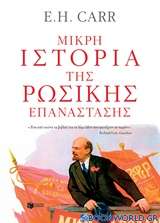English for World Politics and International Relations
Εκδότης:
Φαίδιμος
Έτος:
2013
ISBN:
9786188069190
Σελίδες:
432
Εξώφυλλο:
Μαλακό

Τιμή εκδότη:€38,16
Η τιμή μας: €34,34
English for World Politics and International Relations
World politics (or International Relations) is a subject rather than a discipline, a field rather than a form of knowledge.
There is little doubt, however, that the most important contributions in international relations have been made by history-the explanation of events by reference to evidence of thought and action contained principally in documents and artifacts , ethics-the definition of right and wrong- and philosophy-the clarification of concepts and the unpicking of incoherent arguments.
Though international political theory was little more than a footnote to political theory until the twentieth century (Machiavelli, Rousseau, Locke, Kant, Hobbes, and others had something to say on it, but not a great deal), it is now at least a lengthy appendix, if not a large chapter, in its own right. This is in great part because world politics is now much more dangerous and it is imperative to devote attention to the sources of conflict between states and especially to ways of preventing their disputes from escalating into war .
Studying international relations or politics enables students and professionals to better comprehend the information we receive daily from newspapers, television and radio.
Students in international relations at university are driven by a variety of motives and by active concern to study great contemporary issues, such as the causes and persistence of war, threats of nuclear proliferation and terrorism, the persistence of global poverty amid globalisation’s benefits and longer-term threats to sustainable development.
World politics (or International Relations) is a subject rather than a discipline, a field rather than a form of knowledge.
There is little doubt, however, that the most important contributions in international relations have been made by history-the explanation of events by reference to evidence of thought and action contained principally in documents and artifacts , ethics-the definition of right and wrong- and philosophy-the clarification of concepts and the unpicking of incoherent arguments.
Though international political theory was little more than a footnote to political theory until the twentieth century (Machiavelli, Rousseau, Locke, Kant, Hobbes, and others had something to say on it, but not a great deal), it is now at least a lengthy appendix, if not a large chapter, in its own right. This is in great part because world politics is now much more dangerous and it is imperative to devote attention to the sources of conflict between states and especially to ways of preventing their disputes from escalating into war .
Studying international relations or politics enables students and professionals to better comprehend the information we receive daily from newspapers, television and radio.
Students in international relations at university are driven by a variety of motives and by active concern to study great contemporary issues, such as the causes and persistence of war, threats of nuclear proliferation and terrorism, the persistence of global poverty amid globalisation’s benefits and longer-term threats to sustainable development.
| Τίτλος βιβλίου: | English for World Politics and International Relations | ||
|---|---|---|---|
| Εκδότης: | Φαίδιμος | ||
| Συντελεστές βιβλίου: | Διαμαντής, Γαβριήλ Β. (Συγγραφέας) | ||
| ISBN: | 9786188069190 | Εξώφυλλο βιβλίου: | Μαλακό |
| Στοιχεία έκδοσης: | Ιανουάριος 2013 | Διαστάσεις: | 24x17 |
| Κατηγορίες: | Επιστήμες > Επιστήμες του Ανθρώπου > Πολιτική Εκπαίδευση > Γενικά > Ξένες Γλώσσες | ||
Δεν βρέθηκαν στοιχεία για τον συγγραφέα











